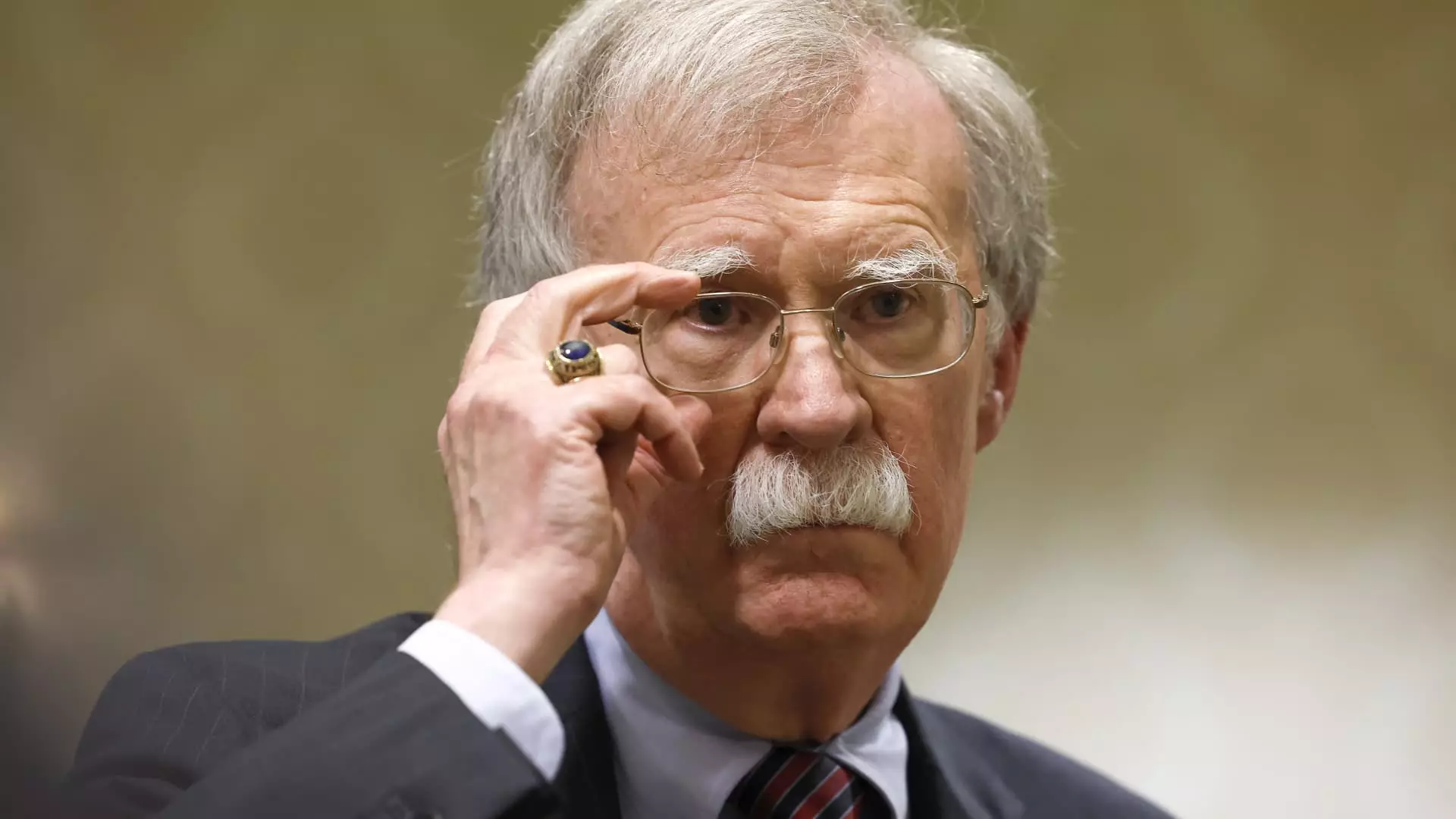In recent years, the diplomatic scenery has faced seismic shifts due primarily to the United States’ aggressive trade policies under the Trump administration. While proponents argue that taking a hardline stance on tariffs is necessary to curb the economic threats from China, the fallout from these moves has been disastrous—not just for global economics but also for the fragile alliances that have taken decades to build. Former national security advisor John Bolton’s critique highlights how treating allies with hostility while aiming to confront a common rival is an egregious miscalculation that could unravel decades of diplomatic effort.
In Bolton’s view, the United States has essentially handed strategic leverage to China rather than fostering a united front to address the complex web of trade disparities. The core of Bolton’s argument resonates with a disturbing notion: aggressive tariffs undermine cooperation. Rather than addressing the root complaints about China’s trade practices—such as intellectual property theft and industrial subsidies—America’s actions have inadvertently strengthened China’s position. This is not merely an economic blunder; it represents a strategic oversight with potentially overwhelming consequences.
The Tariff Fallacy
On what Trump labeled “liberation day,” the unveiling of sweeping tariffs startled international markets, causing chaos reminiscent of economic crises of the past. Many economists deemed the measures illogical and damaging. By casting a wide net of blanket tariffs, the reasoning seemed less a calculated strategy and more an emotional reaction against perceived injustice in trade. This decision did not just isolate adversaries; it brushed aside allies in a manner reminiscent of a sibling rivalry gone awry, where the older child’s misbehaviors put the whole family unit at stake.
Such aimless aggression is particularly perplexing considering that the fundamental goal—rectifying trade imbalances—was achievable through coalition-building. Instead, we witnessed the U.S. impose a 10% tariff on a wide range of imports while escalating tariffs specifically against China. This approach has often relied on emotional rhetoric rather than well-thought-out policy frameworks, causing ripple effects that have led to the erosion of trust among traditional allies.
The Cost of Isolationism
While addressing unfair trade practices is crucial, laying blame exclusively at China’s doorstep is shortsighted. By deploying tariffs in an aggressive manner, Trump’s administration has not just provoked a tit-for-tat escalation but has also endangered longstanding partnerships critical to U.S. interests. Countries that historically stood with Washington find themselves precariously aligned against its trade policies, as they now face punitive measures that disregard the complexity of international trading norms.
Bolton’s remarks also raise important questions about future diplomatic strategies. Instead of rallying a coalition of nations like Japan, South Korea, and various European allies—the very nations facing similar trade grievances against China—this administration seems preoccupied with undermining its traditional friendships. The long-term costs of such diplomatic isolation will manifest in unforeseen ways, potentially redirecting allegiance towards Beijing among nations that once regarded the U.S. as an indispensable partner.
The Emergence of New Alliances
The geopolitical landscape is evolving rapidly, and if the U.S. does not adjust its strategies, it will risk losing its pivotal role. Leaders worldwide are beginning to recognize this shift. Following Trump’s incendiary policies, Chinese Premier Xi Jinping has embarked on a tour through Southeast Asia, seeking to establish connections that could bolster China’s influence amid U.S. unpredictability. Regions that once were spheres of American influence are now embroiled in the possibility of aligning with a different superpower.
Xi’s approach underscores a significant error in American foreign policy: alienation can swiftly lead to opportunism. While Trump’s administration remains entrenched in a particular worldview, neglecting international relationships may ultimately fragment alliances that once acted as counterweights to authoritarian tendencies. The vulnerability exhibited by the U.S. in its trade discourse may embolden nations, from the Middle East to Asia, to pursue partnerships with nations willing to fill the vacuum left by an America that appears to be withdrawing from its leadership role.
Consequences for America’s Future
The repercussions of Trump’s tariff policy extend far beyond immediate market responses; they resonate through the fabric of international relations and trust. Bolton poignantly points out that the credibility built by the U.S. over the last eight decades is being compromised. As the world watches anxiously, America may find itself caught in a web of its making—a precarious mix of diplomatic blunders, misguided priorities, and a potential realignment that could sideline its influence globally.
In the end, the lessons are stark: leveraging tariffs as a blunt instrument is not simply a policy choice; it’s a reflection of an unwillingness to engage constructively. As we navigate this increasingly polarized world, the importance of strategic alliances remains paramount. For the United States to reclaim its role as a leader, it must confront the balance between standing firm against adversaries and preserving the alliances that define its strength on the global stage. If not, we risk watching a new world order emerge—one that could marginalize American interests not through aggression, but through a simple act of disengagement.


Leave a Reply